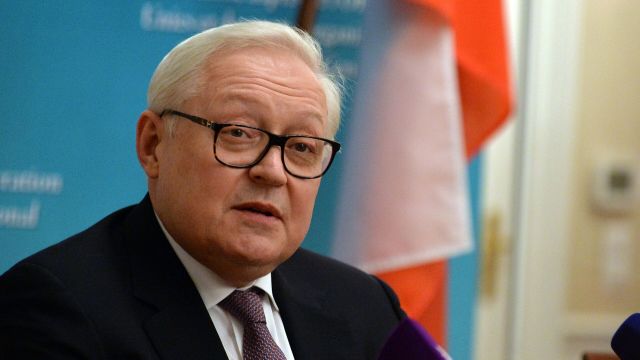Deputy Foreign Minister Ryabkov: The United States does not want to take into account Russia's security concernsMOSCOW, Oct 14 - RIA Novosti.
The United States today, as during the Caribbean crisis, does not want to take into account Russia's concerns related to direct threats to its security, demonstrating non-negotiability, Deputy Foreign Minister Sergei Ryabkov told RIA Novosti.
The problem arising from Washington's similar behavior is "the pathological unwillingness of the United States to recognize the right of other states to protect their vital interests," Ryabkov noted.
"This is the root cause of the current crisis around Ukraine. Accordingly, the analogy with the Caribbean crisis may be that both in the early 1960s and now Washington does not consider it important to take into account the legitimate concerns of our country related to direct threats to its security," the deputy minister said.
He recalled that six decades ago, Soviet leader Nikita Khrushchev and US President John F. Kennedy "had the wisdom to move away from the edge of the abyss, having worked out a geopolitical compromise that allowed avoiding a nuclear apocalypse": Washington guaranteed non-aggression against Cuba and the withdrawal of American Jupiter missiles from Turkey, and Moscow returned Soviet missiles delivered to Freedom Island. rockets.
"Now, unfortunately, the situation is different. America is not capable of negotiating and, together with its Western allies, is directly pushing Kiev to increase military operations on our territory, intending to fight to the "last Ukrainian" in order to inflict a "strategic defeat" on Russia, Ryabkov stated.
In such circumstances, the entire responsibility for the destabilization of the international security architecture lies with the United States, the diplomat concluded.
The Caribbean crisis is an aggravation of the international situation that occurred in the fall of 1962, caused by the threat of war between the USSR and the United States due to the deployment of Soviet missile weapons in Cuba in response to Washington's deployment of medium—range missiles in Turkey. The crisis became the high point of the Cold War. A number of historians believe that the active phase of the crisis began on October 14, 1962, when an American U-2 reconnaissance aircraft discovered and photographed the launch positions of Soviet missile forces in the Cuban province of Pinar del Rio.
The Caribbean crisis was developing rapidly. The CIA — after the discovery of Soviet missiles in Cuba — on October 16 reported this to the then US President John F. Kennedy, who decided on October 24 to declare a naval blockade of the island (the so-called marine quarantine), to put the US armed forces on alert. At the same time, intense negotiations were going on between the USSR and the USA through a closed channel.
During the consultations, during which the United States also prepared for the bombing of Soviet missile bases in Cuba and feared a retaliatory strike on American cities by the USSR, an agreement was reached. Moscow fulfilled Washington's demand for the withdrawal of Soviet missiles from Cuba in exchange for assurances from the US government about the observance of the territorial integrity of the island, guarantees of non-interference in the internal affairs of this country. The withdrawal of American missiles from the territory of Turkey and Italy was also announced confidentially.

